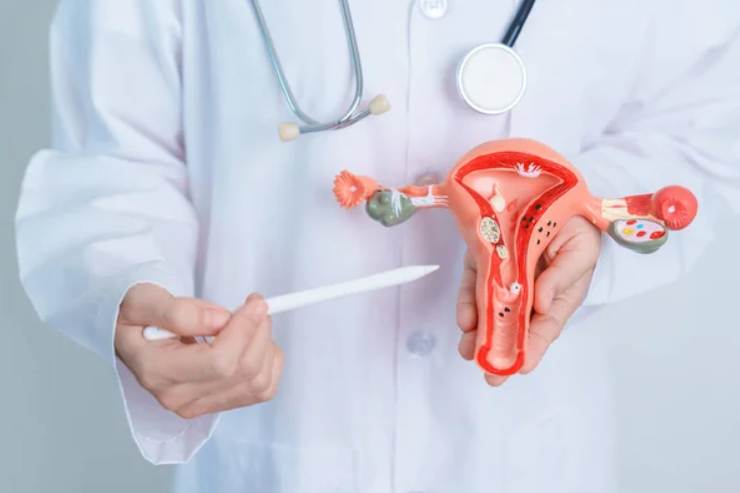Fibroids Treatment
Fibroids Treatment
Fibroids, also known as uterine fibroids or leiomyomas, are noncancerous growths that develop in the uterus. While many women may have fibroids without experiencing any symptoms, for others, these growths can cause significant discomfort and complications.
Symptoms of Fibroids
Before delving into treatment options, it’s crucial to recognize the symptoms associated with fibroids.
- Heavy menstrual bleeding
- Pelvic pain or pressure
- Frequent urination
- Pain during intercourse
- Constipation
- Backache or leg pains

Treatment Options
When it comes to addressing fibroids, there are several treatment options available, depending on the severity of symptoms, the size and location of the fibroids, and the patient’s preferences.
Watchful Waiting: In cases where fibroids are small and not causing symptoms, a “watchful waiting” approach may be recommended. Regular monitoring by a healthcare provider ensures that any changes are promptly addressed.
Medications: Certain medications can help manage symptoms associated with fibroids, such as nonsteroidal anti-inflammatory drugs (NSAIDs) to relieve pain or hormonal birth control to regulate menstrual bleeding.
Minimally Invasive Procedures: For women experiencing moderate to severe symptoms, minimally invasive procedures may be recommended, including:
- Uterine artery embolization (UAE): This procedure involves blocking the blood supply to the fibroids, causing them to shrink over time.
- Myomectomy: A surgical procedure to remove the fibroids while preserving the uterus, making it a suitable option for women who wish to retain their fertility.
- Laparoscopic or robotic-assisted surgery: These minimally invasive techniques involve removing fibroids through small incisions in the abdomen, resulting in quicker recovery times compared to traditional open surgery.
Hysterectomy: In cases where fibroids are severe and other treatment options have been ineffective, a hysterectomy may be recommended. This surgical procedure involves removing the uterus and is considered a permanent solution for fibroids.
About Us
Gynecological consultations at Ashirwad Clinic are a cornerstone of its services. With expertise in addressing a myriad of women's health concerns, the clinic offers a safe and welcoming environment for patients to discuss their needs. Whether it's managing menstrual irregularities, diagnosing PCOD.
Quick Contacts
- Address : Shop No-2, A-53, opposite Patanjali Store, Swarna Jayanti Nagar, Aligarh, Uttar Pradesh 202001
- Phone : +91 7906148352, 9871165086.
- Email : ashirwadclinic@gmail.com
- Country : India
